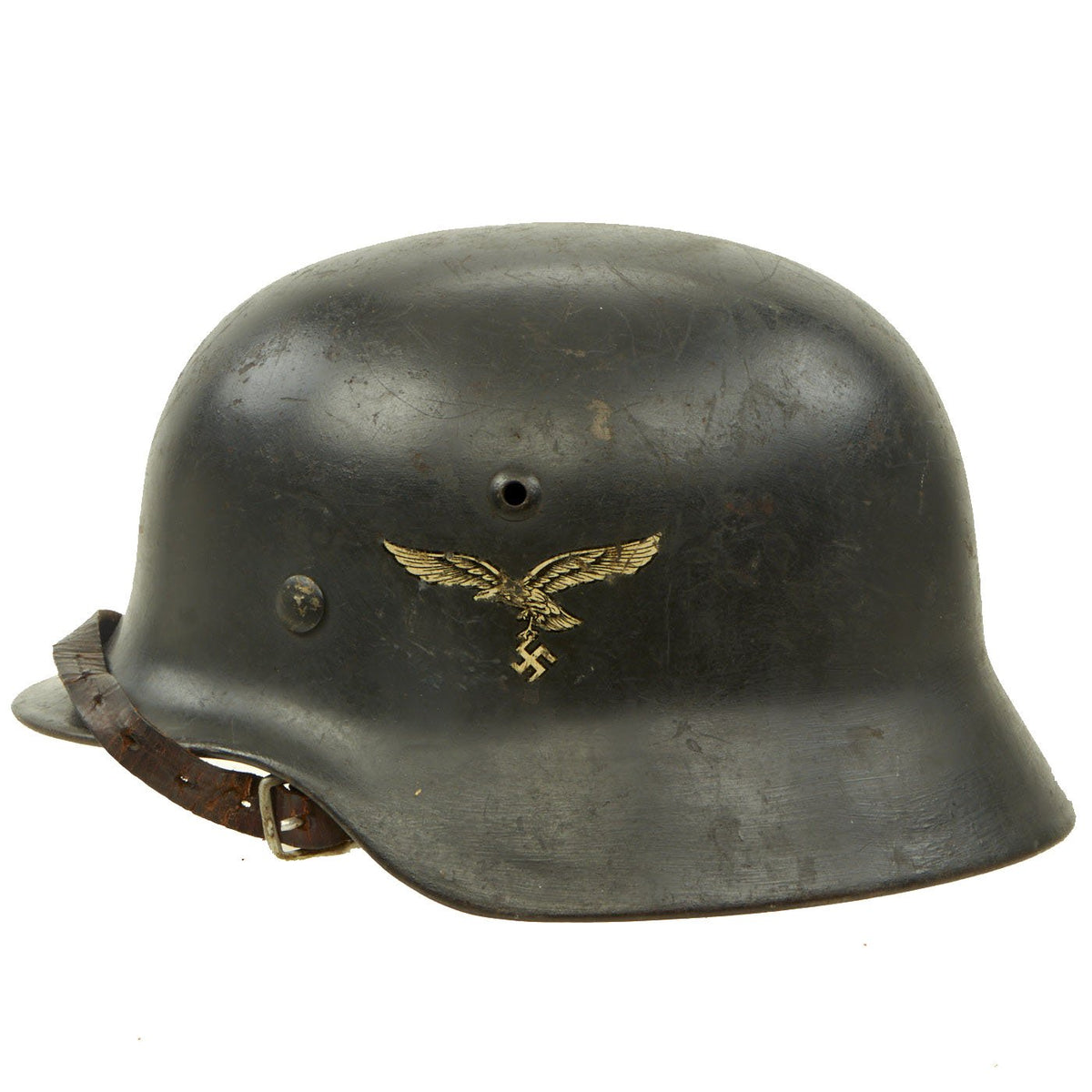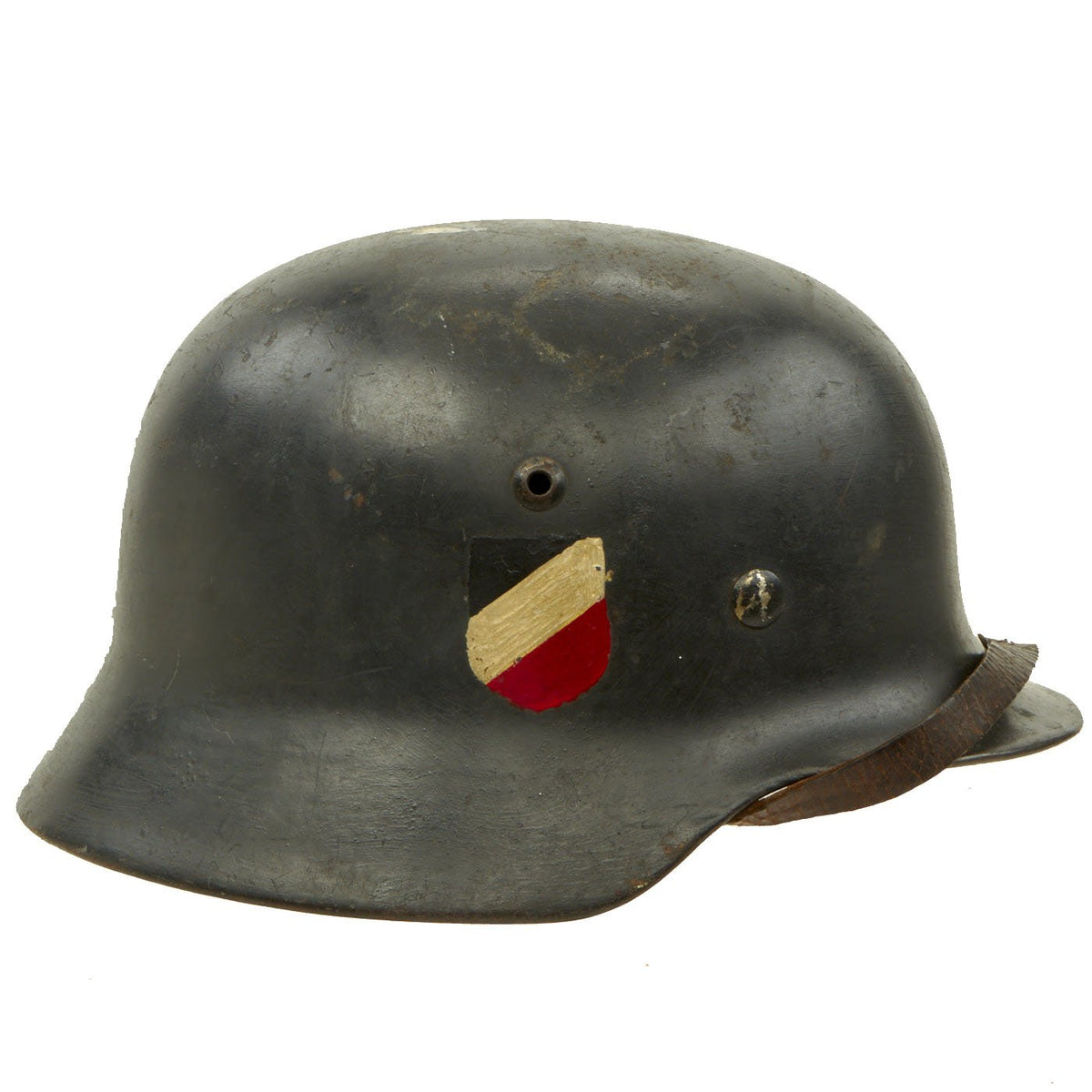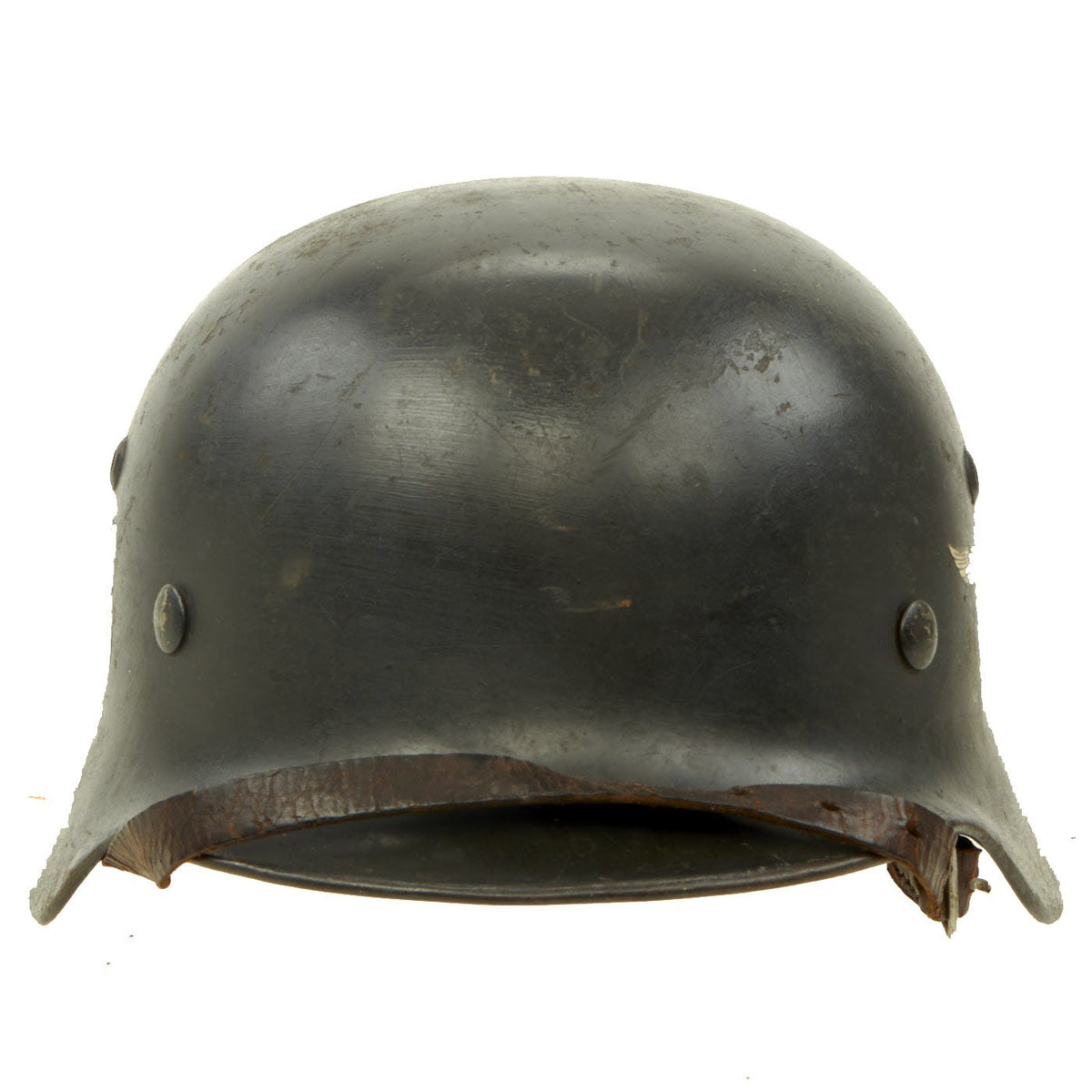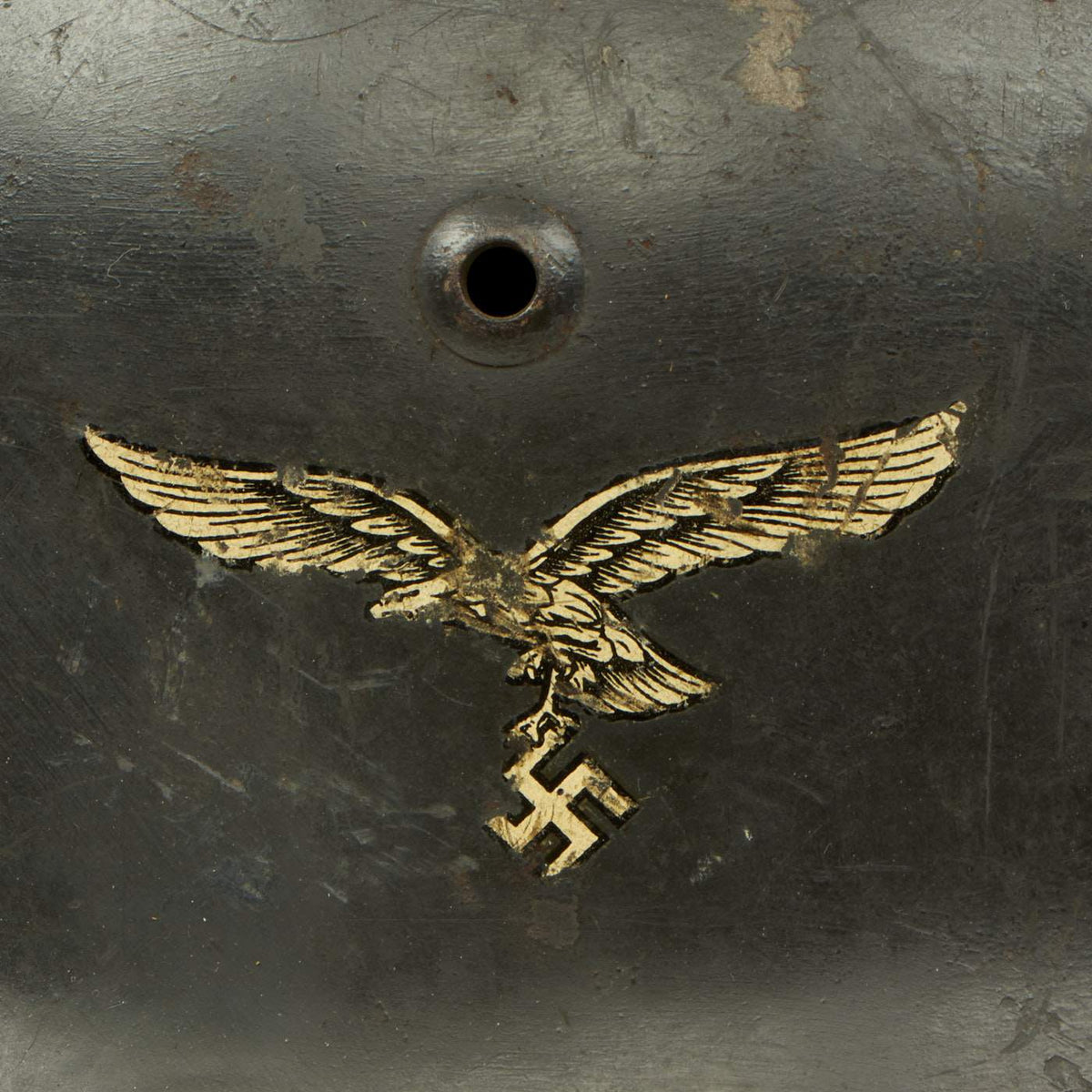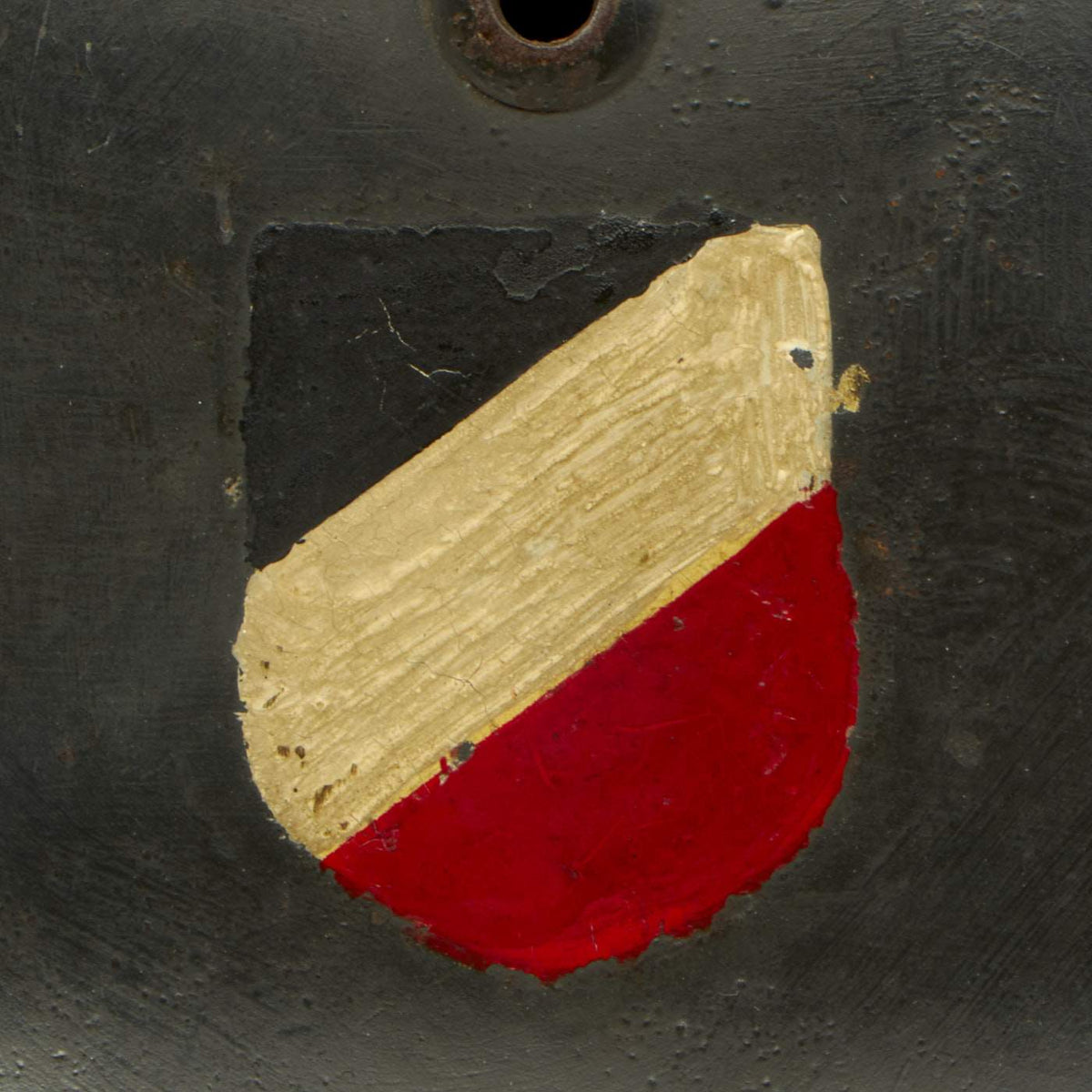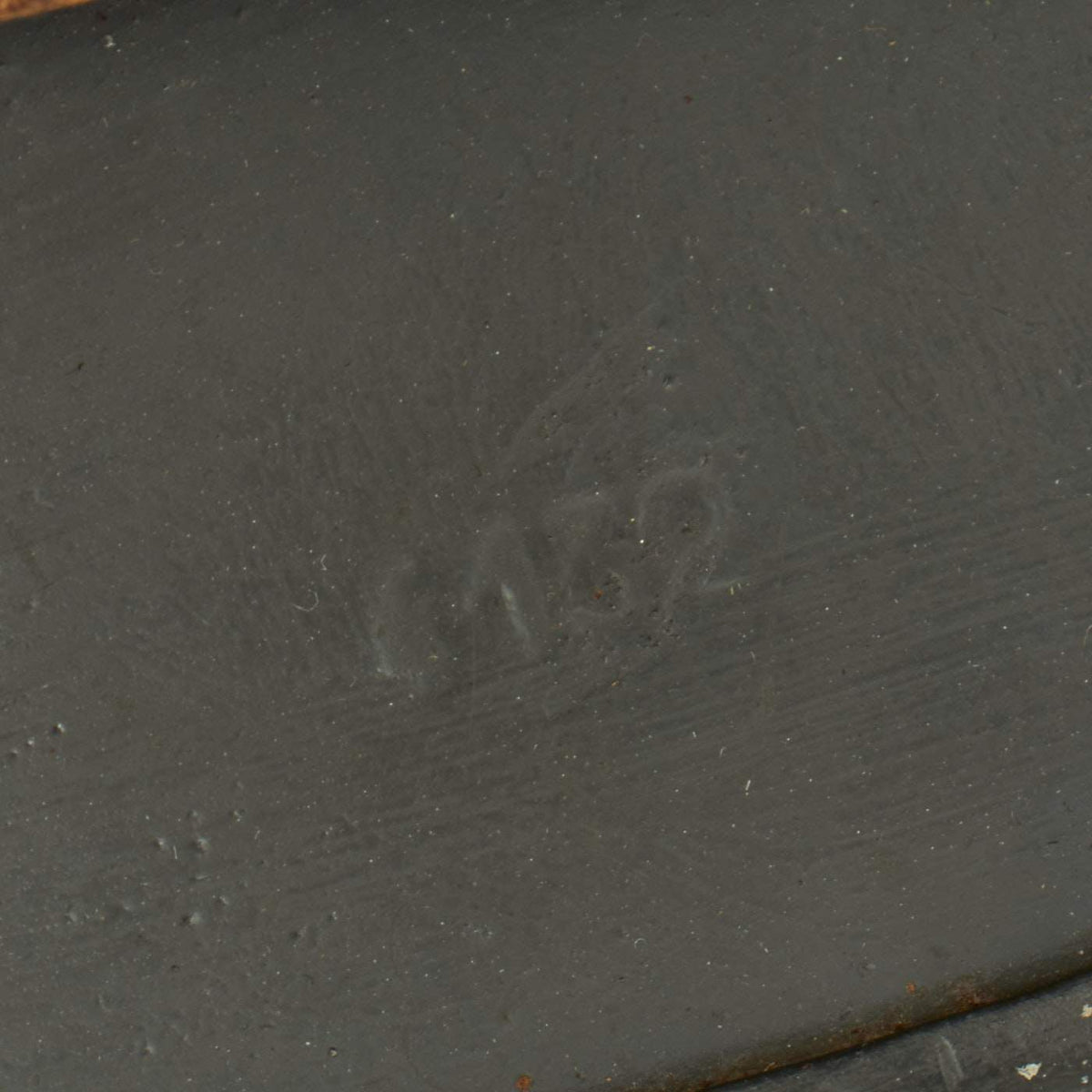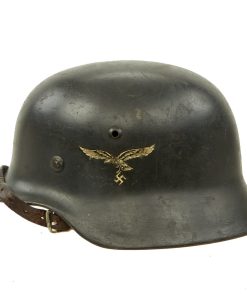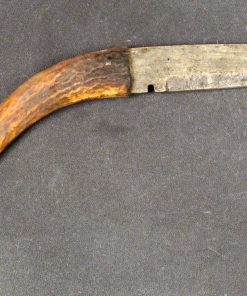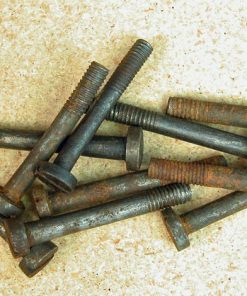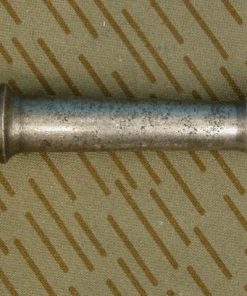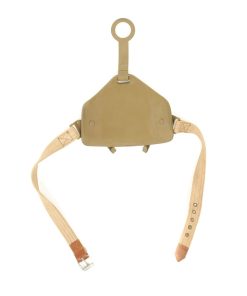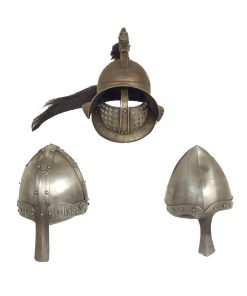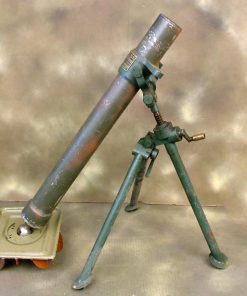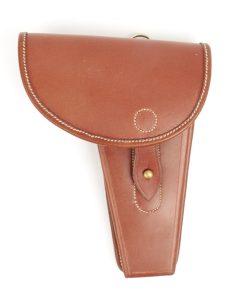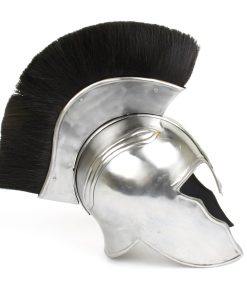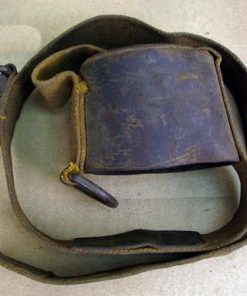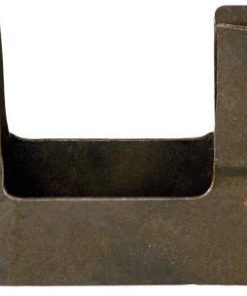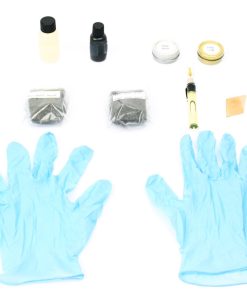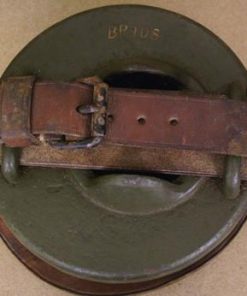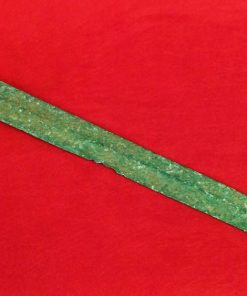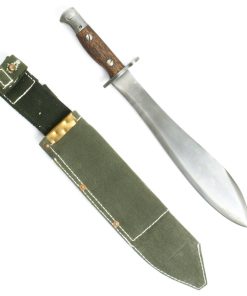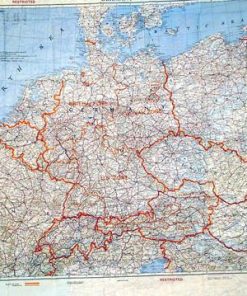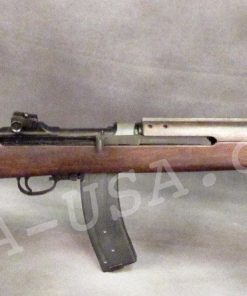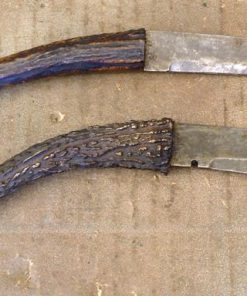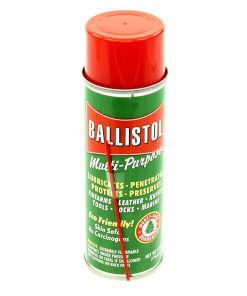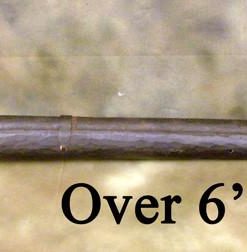Original German WWII Luftwaffe M35 Double Decal Helmet with Size 56 Liner & Chinstrap – marked SE64 Original Items
$ 1.295,00 $ 323,75
Original Item: Only One Available. This is a very nice all original example Model 1935 German WWII “double decal” helmet, with a Luftwaffe Eagle decal on the left side, and a restored “National Colors” decal on the right side. This stamped sheet steel construction helmet retains about 80% of the original Fliegerblau (Flyer Blue) paint and is in very good condition overall. It does show overall wear from cleaning and service, giving it a great look. The National Colors decal is quite vibrant, because it has been painted over to enhance the look. You can see some of the original decal underneath, which was partly missing or worn away. The Luftwaffe decal is probably around 90%, with light wear and a few areas chipped out. The use of the second decal was discontinued in 1940, and in 1943 it was ordered that helmets with the national colors have them removed, so finding a helmet with both still intact is a real treat!
The reverse, interior, neck guard apron is batch number stamped 4132, and the interior, left side, apron has a stamped manufacturer’s code and size, SE64. This indicates it was manufactured by Sächsische Emaillier und Stanzwerke A.G. of Lauter, Germany in size 64. This is a nice medium size that can accommodate liners from 56cm to 57cm or US 7 to 7 1/8. Size 64 shells are harder to find and are therefore more valuable to a collector.
All three liner retaining pins are intact, with most of their original paint still intact. The helmet still has its correct very good condition M31 liner with all of the 8 fingers present and supple. The liner also still has its original size adjustment string, and overall the leather shows moderate wear, and a lovely aged color. The liner band is aluminum, with square aluminum chin strap loops attached to reinforced sides. This is the last pattern before the move to galvanized steel bands. The left exterior of the liner band is marked 64 n. A. 55, indicating that it is a size 58 liner for a size 66 shell. The right side displays the full manufacture information, as well as a date:
B. & C.
BERLIN
1939
This liner was made by Biedermann & Czarnikow, a German company who later moved operations to Łódź in occupied Poland to take advantage of the slave labor in the ghetto located there. NSDAP authorities renamed Łódź to Litzmannstadt in honor of the German General Karl Litzmann who had captured the city in the previous World War.
The chin strap is present, and is completely correct, with all aluminum hardware. It is maker marked and dated on the end with OTTO JÄHNKE / BERLIN / 1939. The leather is worn and somewhat stiff, so we definitely feel that it was used in service with this helmet.
Overall a very nice totally early war double decal Luftwaffe helmet with a great lightly worn look, ready to display!
The first “modern” steel helmets were introduced by the French army in early 1915 and were shortly followed by the British army later that year. With plans on the drawing board, experimental helmets in the field, (“Gaede” helmet), and some captured French and British helmets the German army began tests for their own steel helmet at the Kummersdorf Proving Grounds in November, and in the field in December 1915. An acceptable pattern was developed and approved and production began at Eisen-und Hüttenwerke, AG Thale/Harz, (Iron and Foundry Works), in the spring of 1916.
These first modern M16 helmets evolved into the M18 helmets by the end of WWI. The M16 and M18 helmets remained in usage through-out the Weimar Reichswehr, (National Defence Force, Circa 1919-1933), era and on into the early years of the Third Reich until the development of the smaller, lighter M35 style helmet in June 1935.
The Luftwaffe pattern national eagle was originally introduced for wear by Fliegerschaft, (Pilot Base), personnel of the DLV, Deutscher Luftsportsverband, (German Air Sports Association), the clandestine, civilian, forerunner of the Luftwaffe on August 18TH 1934, and adopted for wear by the Luftwaffe on March 1ST 1935 along with the national tri-color shield for wear on the helmet.
The first pattern national eagle was utilized until a modified second pattern eagle was introduced in late 1936 or early 1937. Regulations of June 12TH 1940 discontinued the use of the national tri-color decal and further regulations of August 28TH 1943 abolished the national eagle decal and dictated that it was also to be removed from all helmets although the directives were not completely adhered to.
Fast Shipping with Professional Packaging
Thanks to our longstanding association with UPS FedEx DHL, and other major international carriers, we are able to provide a range of shipping options. Our warehouse staff is expertly trained and will wrap your products according to our exact and precise specifications. Prior to shipping, your goods will be thoroughly examined and securely secured. We ship to thousands clients each day across multiple countries. This shows how we're dedicated to be the largest retailer on the internet. Warehouses and distribution centres can be located throughout Europe as well as the USA.
Note: Orders with more than one item will be assigned a processing date depending on the item.
Before shipping before shipping, we'll conduct a thorough inspection of the items you have ordered. Today, the majority of orders will be delivered within 48 hours. The delivery time will be between 3-7 days.
Returns
The stock is dynamic and we cannot completely manage it because multiple stakeholders are involved, including our factory and warehouse. So the actual stock may alter at any time. It's possible that you may not receive your order once the order has been made.
Our policy is valid for a period of 30 days. If you don't receive the product within 30 days, we are not able to issue a refund or an exchange.
You can only return an item if it is unused and in the same state as the day you received it. You must have the item in its original packaging.
Related products
Uncategorized
Uncategorized
Uncategorized
Australian WWII Owen MK1 Machine Carbine SMG Custom Fabricated Replica with Sling Original Items
Uncategorized
Uncategorized
Uncategorized
Uncategorized
Uncategorized
Uncategorized
Uncategorized
Uncategorized
Uncategorized
Uncategorized
Uncategorized
Uncategorized
Uncategorized
